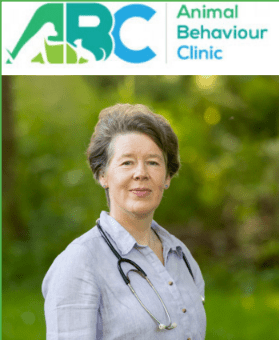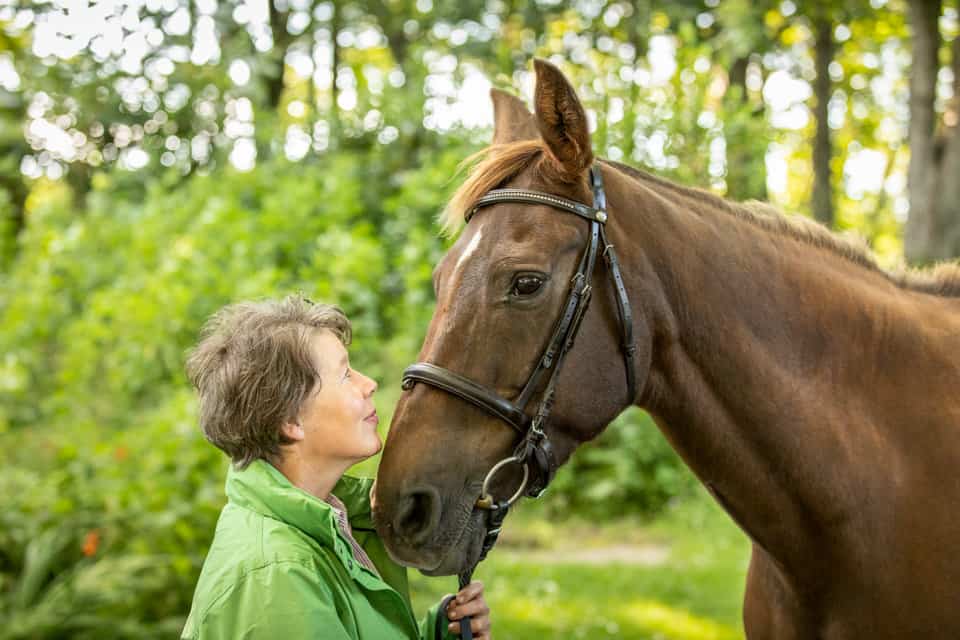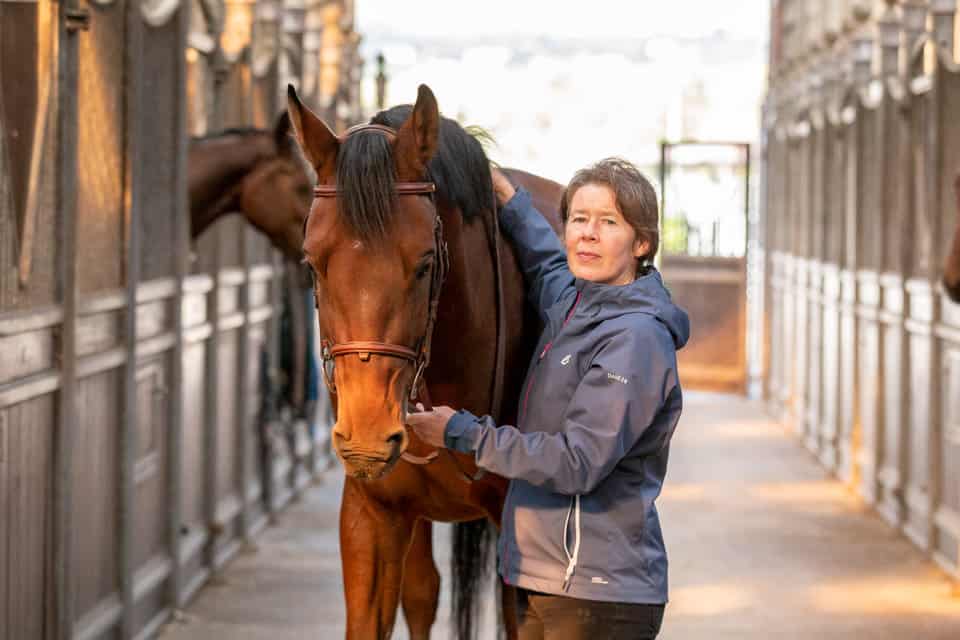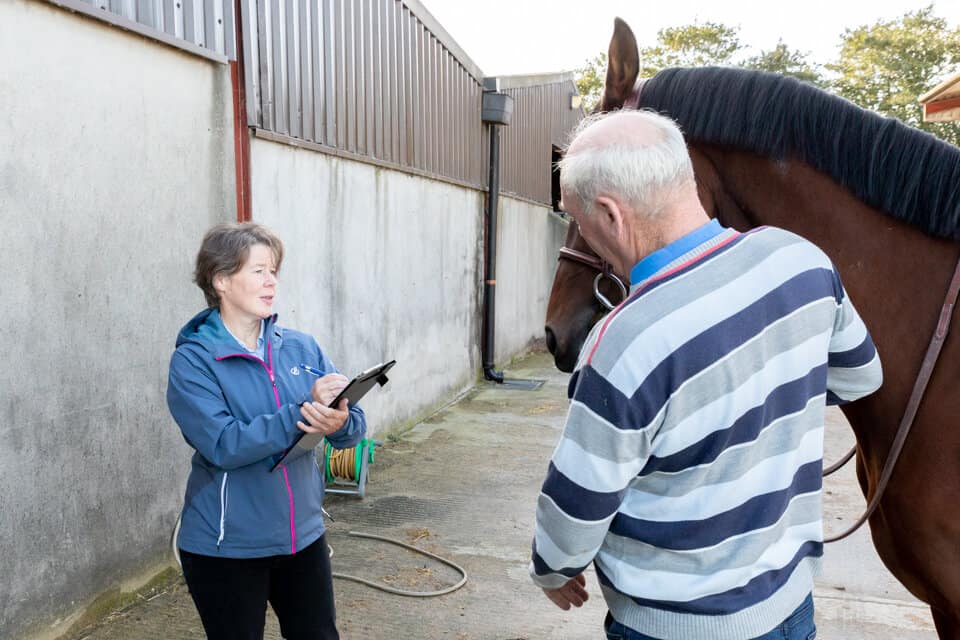Animal Behaviour and indeed Equine Behaviour is such a hot topic at the moment. Natural Horsemanship is just one of the facets of Equestrianism that has brought a much needed look into Equine Behaviour in a effort to work with our horses in a more humane and natural way.
There is a plethora of training methods and it can be hard to know just what is right, so we reached out to Animal Behaviour Expert Orla Doherty from the Animal Behaviour Clinic in Ireland. Orla is a qualified Vet who went on to do a Masters and PHD in Animal Behaviour in particular looking at how horses learn and how we as trainers impact that learning in a positive or negative light.

Orla’s Background
Hailing from Inishowen in Co. Donegal, it was plain from talking with Orla that she was always Animal Crazy, she always had dogs, budgies, and as she put it herself, was lucky enough to get a pony aged 12. A common thread as she was engrossed in her young life with her animals was she always wanted to understand her pets more, to know what they were thinking.
A family friend then planted a seed in young Orla’s mind, “You should become a Vet!” That was all it took for this young girl to decide becoming a Vet was a perfect idea, her work would then be centred on animals, her first love.
When secondary school started, Orla, worked hard and as she put it, “Now that I had a goal of becoming a vet, it made me focus more in school. I also approached a local vet, who allowed me to go out on calls and help in the surgery during my holidays and weekends, which I loved.”
Vet School & Animal Behaviour Research.
Once she got to vet school, Orla had postponed her idea of studying animal behaviour as something to do when she retired, as she couldn’t see a way of making a living at it. Then in her 4th year at vet school, opportunities to apply for student scholarships to study abroad opened up. To Orla’s delight she was awarded one of the scholarships to assist a lecturer in Auburn University in Alabama, USA on a research project looking into learning in horses, so she spent that summer assisting in the research. Coming to the end of the summer, the Dean of the College suggested that she continue her studies and he put her in touch with Dr Katherine Houpt a world renowned equine behaviour expert, who ended up mentoring Orla, and also advised her to do a Masters Degree at Edinburgh University, once she had completed vet school.
A Masters Degree In Edinburgh University.
Orla went on to complete her Masters in Applied Animal Behaviour and Animal Welfare at Edinburgh University, learning a lot about how animals learn along with the factors that influence that learning. Once that was completed Orla applied for further funding to continue her research, which gave her the opportunity to spend time at Cornell University, New York, shadowing and assisting Dr Houpt in her studies on dogs and horses.
Founding The Animal Behaviour Clinic
On returning to Ireland in 1995, Orla began to work in general veterinary practice, building her Animal Behaviour practice along the way. She also lectured in the University of Limerick on equine behaviour to the Equine Science students, along with lecturing on animal behaviour to the veterinary students in UCD. During this time Orla also used her skills in behaviour to further her love of riding, competing her horse at first in Riding Club, and later progressing to Eventing Ireland level, massively enjoying the experience.

The Book That Lead To A PHD On The Effects of Equipment On Equine Welfare.
Then a chance purchase of a book on Equine Behaviour at a veterinary conference by world renowned animal behaviour expert Prof Paul McGreevy, sent Orla on a further journey into Animal Behaviour. Orla found the book so insightful that eventually she reached out to McGreevy to see if she could observe his work, and travelled to Australia to study the work of another world renowned leader in equine training methods, Dr Andrew McLean.
To make a long story short, Professor McGreevy suggested that Orla continue her research by continuing with a PHD in animal behaviour. This Orla did and she completed the PHD in 2016, which focused on equipment used in training and its effects on equine welfare. Orla’s work was instrumental in her appointment in 2019 as the Hon President of the International Society for Equitation Science, a society that researches how horses are trained with the aim of improving horse welfare, and horse and rider interactions.

Goals
Orla has been busy presenting her equine research both in Ireland and throughout the world and also lecturing to equestrian coaches and she works closely with education centres such as Festina Lente in Bray, Co. Wicklow. Her main goal for the future of her Animal Behaviour Clinic, is to educate as many people as possible in animal behaviour and in particular how animals learn, with the aim of improving the human – animal relationship.
“With horses, when a rider/trainer really understands how the horse learns, this can be used to improve communication between horse and human, leading to a better and more harmonious working relationship, both on the ground and under saddle.”
Dr Orla Doherty
Equine Behaviour Consultation

“Animal/Equine Behaviour Work is not a quick fix. When I am first called to work with a horse, I spend quite a bit of time taking details, about what is happening, how long it has been going on, along with observing the animal and the behaviour. Once we have discovered what has caused or may be contributing to the behaviour, we address the problem by improving management and or training practices, discussing how the animal learns and how this can be used to the trainer’s advantage to build a better rapport and improve training outcomes for the future. We then work out a plan to help the horse in the safest and most beneficial way for all concerned.”
Dr Orla Doherty
“So much of what we do with horses is intrusive and far removed from what is a natural environment for them. I believe, that by incorporating more natural practices along with understanding how our horses learn, this will lead to improved human to horse communication, giving rise to happier horses and therefore happy humans.”
Dr Orla Doherty
Top Tips From Orla
“Horses thrive better when they have some paddock time with their own kind; this allows them down time along with the necessary social interaction a herd animal requires.
Best Tip for training is to scratch your horse’s withers to reward them. Research has proven that this will actually lower the animal’s heart rate, and help them relax, plus, it is scientifically proven to reduce the heart rate more quickly the more often it is repeated in the horses routine.”
Dr Orla Doherty
If you would like to contact Dr Orla Doherty in relation to her work or to organise a consultation you can do so through her website www.animalbehaviourclinic.ie.
This Article was originally published in the May 2021 Issue of Irish Sport Horse Magazine. All Pictures were provided courtesy of Dr Orla Doherty and remain her property.
